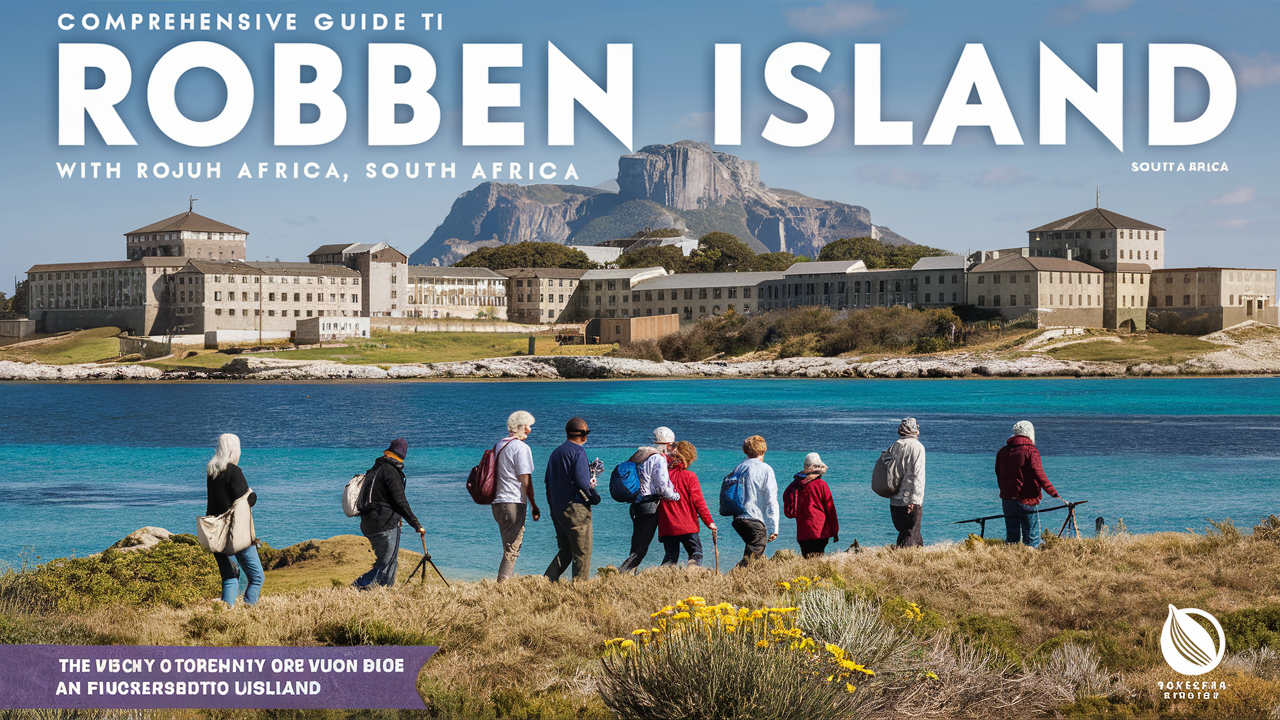Introduction
Robben Island stands as a testament to South Africa’s tumultuous history, embodying the struggle against apartheid and the triumph of human resilience. Located just off the coast of Cape Town, Robben Island’s significance transcends its physical boundaries, symbolizing both oppression and hope. In this comprehensive guide, we delve into the island’s rich history, its significance, South Africa visitor experience, and the enduring legacy it carries.
Historical Background
Robben Island’s history dates back centuries, with its name derived from the Dutch word for “seal.” Initially used by indigenous Khoikhoi communities, the island later became a site of significance during South Africa’s colonial period. However, its most infamous chapter began with the establishment of a prison by Dutch colonizers in the 17th century.
Apartheid Era: Symbol of Oppression
During the apartheid era, Robben Island gained international notoriety as a place of political imprisonment. The South African government incarcerated political dissidents, including Nelson Mandela, Walter Sisulu, and other anti-apartheid activists, on the island. Mandela’s 18-year incarceration on Robben Island transformed it into a symbol of resistance against racial segregation and injustice.
Visiting Robben Island: A Journey Through History
Getting There
To reach Robben Island, visitors must embark on a ferry journey from the V&A Waterfront in Cape Town. The ferry ride offers stunning views of Table Mountain and the Cape Town skyline, setting the stage for the historical experience that awaits.
The Tour
Upon arrival, visitors are greeted by knowledgeable guides who lead them on a comprehensive private tour safaris of the island. The tour includes stops at key sites such as the limestone quarry where Mandela and other prisoners endured grueling labor, the maximum-security prison, and the house where Mandela spent most of his imprisonment.
Insights from Former Prisoners
One of the most poignant aspects of the Robben Island tour is the opportunity to hear firsthand accounts from former political prisoners. Their stories offer a deeply personal perspective on the struggles and triumphs of the anti-apartheid movement, providing visitors with a profound understanding of the island’s significance.
Legacy and Symbolism
Robben Island’s significance extends far beyond its role as a former prison. It serves as a living testament to the resilience of the human spirit and the power of reconciliation. Following the end of apartheid, Robben Island was transformed into a symbol of hope and reconciliation, exemplified by Nelson Mandela’s inauguration as South Africa’s first democratically elected president in 1994.
Preservation and Education
In recognition of its historical importance, Robben Island was designated a UNESCO World Heritage Site in 1999. Efforts to preserve its cultural heritage and educate future generations about its significance remain ongoing, with initiatives aimed at promoting dialogue, understanding, and reconciliation.
Conclusion
Robben Island stands as a reminder of South Africa’s turbulent past and its journey towards democracy and reconciliation. Through its historical significance, poignant narratives, and enduring legacy, the island continues to inspire and educate visitors from around the world. A visit to Robben Island is not merely a tourist experience but a profound journey through history, offering insight into the triumph of the human spirit in the face of adversity.
Robben Island’s story serves as a beacon of hope and a testament to the power of forgiveness and reconciliation. As visitors explore its shores and listen to the echoes of the past, they bear witness to the resilience of the human spirit and the enduring quest for justice and equality. Robben Island remains a symbol of hope, reminding us of the transformative power of perseverance and the possibility of a brighter future for all.
